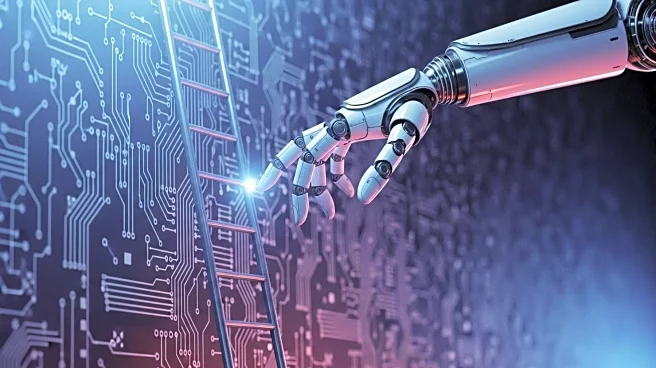What is the story about?
What's Happening?
The rise of artificial intelligence (AI) is significantly impacting entry-level jobs, with predictions that up to 50% of these positions may be eliminated as AI technology advances. This development is leading to a flattening of organizational structures, particularly affecting middle management roles. The traditional career ladder, where individuals could rise from entry-level positions to executive roles, is being challenged. This shift is occurring as college graduates face difficulties in securing jobs, raising questions about the future of career progression and the transfer of institutional knowledge within organizations.
Why It's Important?
The potential elimination of entry-level jobs due to AI poses significant challenges for new graduates and the workforce at large. It threatens the traditional model of career advancement, which has been a cornerstone of corporate culture in the U.S. The shift could lead to a loss of opportunities for skill development and upward mobility, impacting the long-term career prospects of many workers. Additionally, the flattening of organizational structures may alter how companies grow and manage talent, requiring new strategies for workforce development and retention.
What's Next?
As AI continues to evolve, companies and educational institutions may need to adapt by providing new training programs and skill development opportunities to prepare workers for more advanced roles. Businesses might also need to reconsider their hiring practices and organizational structures to accommodate the changing landscape. The focus may shift towards upskilling and reskilling employees to ensure they remain competitive in an AI-driven job market.
Beyond the Headlines
The integration of AI into the workforce raises ethical and social considerations, such as the potential for increased inequality and the need for equitable access to training and development resources. It also highlights the importance of regulatory frameworks to manage the impact of AI on employment and ensure that the benefits of technological advancements are shared across the workforce.















